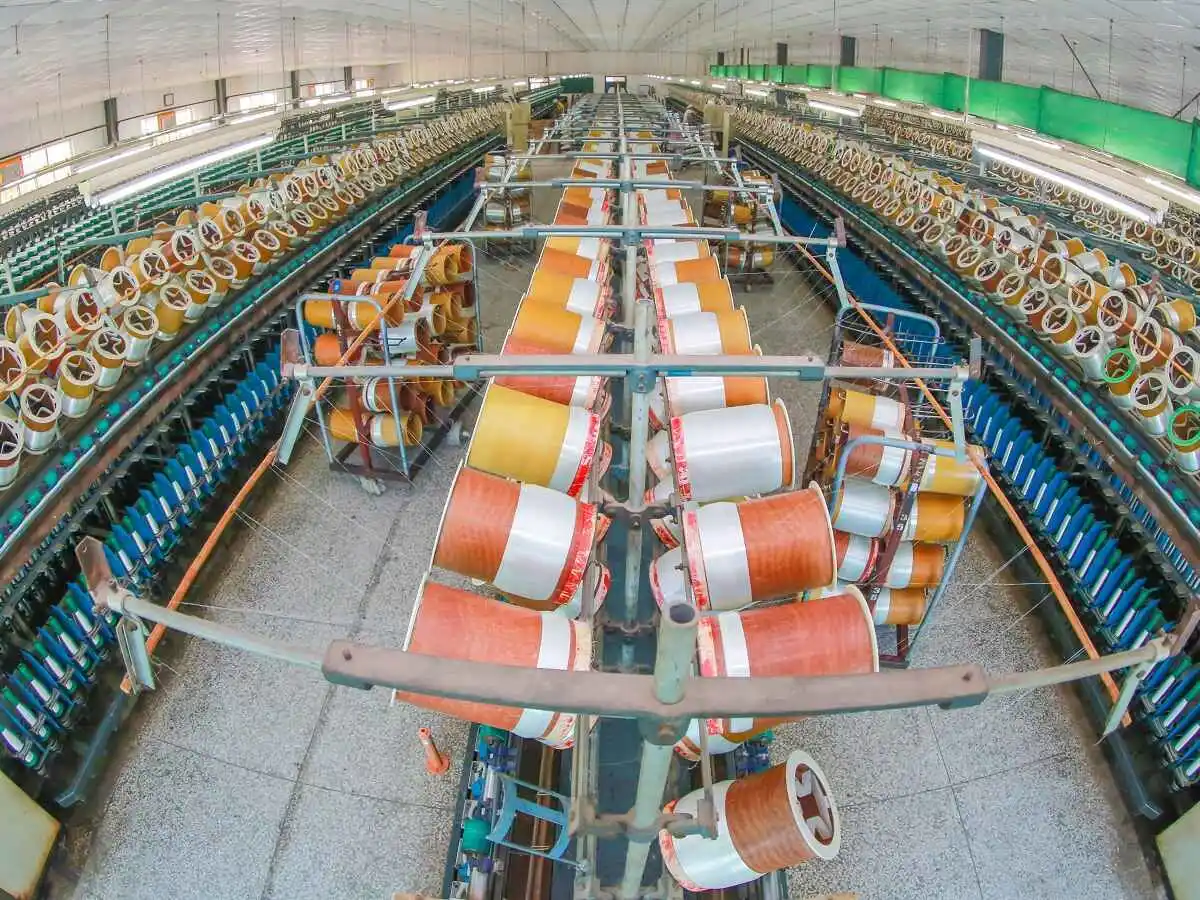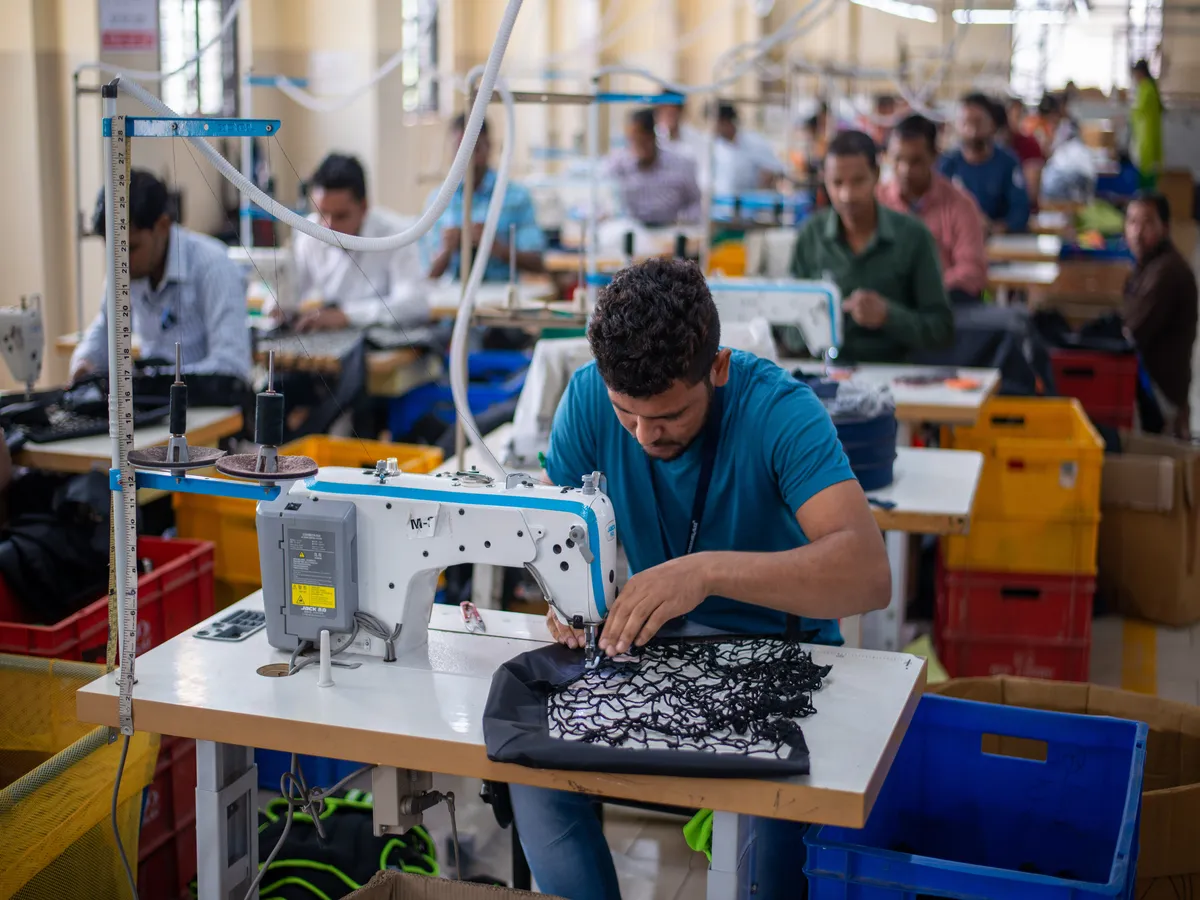Business News
India's curbs on Bangladesh land port imports to boost domestic textile sector by ₹1,000 crore: Report
.png)
3 min read | Updated on May 19, 2025, 12:11 IST
SUMMARY
India has restricted imports of ready-made garments from Bangladesh through land ports, allowing entry only via Kolkata and Nhava Sheva seaports.

Textile industry bodies termed the move a timely step towards preventing the dumping of foreign-made garments and strengthening India's self-reliance in apparel production.| Shutterstock
India’s decision to restrict imports of ready-made garments from Bangladesh through land ports is expected to create an additional ₹1,000-2,000 crore business opportunity for the domestic textile industry, industry experts said.
However, the move may cause short-term disruptions in supply of certain branded garments, with potential price hikes of 2-3% for items such as T-shirts and denims in the winter season.
What has the Indian govt announced?
In a late-night notification issued Saturday, the government said import of ready-made garments from Bangladesh will now be permitted only through Kolkata and Nhava Sheva sea ports, effectively barring such imports via the 11 existing land transit points in the Northeast.
The restrictions, however, exempt essential items such as fish, LPG, edible oil, and crushed stone, and do not apply to Bangladesh’s exports to Nepal and Bhutan transiting through India.
The curbs came over a month after India ended a nearly five-year arrangement that allowed trans-shipment of Bangladeshi export cargo to third countries through Indian airports and seaports.
How will this impact the domestic textile industry?
The new restrictions, effective immediately, mark a major shift in bilateral trade dynamics between the two countries.
The move is expected to benefit domestic manufacturers, especially MSMEs, which have struggled to compete with duty-free, subsidised apparel from Bangladesh, according to experts.
“We were importing garments worth ₹6,000 crore annually from Bangladesh. We can now expect imports worth ₹1,000-2,000 crore to be replaced with Indian manufacturing,” The Economic Times quoted Sanjay K Jain, chairman of the National Textile Committee at the Indian Chamber of Commerce, as saying.
What prompted India to take this step?
Industry voices see the decision as a countermeasure to Bangladesh’s port restrictions on Indian exports from the Northeast.
New Delhi had raised concerns with Dhaka over limited access to Bangladeshi land ports, but did not receive a favourable response, reported PTI, citing officials familiar with the matter.
How important is Bangladesh in the global garment trade?
Bangladesh is one of the world’s largest exporters of ready-made garments, with exports valued at USD 38 billion in 2023.
Of its USD 700 million RMG exports to India, 93% were routed via land ports.
In FY2024-25, Bangladesh exported apparel worth USD 677.5 million to India, a 13.8% rise over the previous year. The Petrapole land port alone accounted for USD 515.3 million, or 76% of the total.
“The decision is a timely step towards preventing the dumping of foreign-made garments and strengthening India's self-reliance in apparel production,” said Santosh Katariya, President, Clothing Manufacturers Association of India (CMAI).
“At the same time, we believe this policy must be complemented with continued support for capacity building and ease of doing business for Indian manufacturers," he added.
While the move has been welcomed by Indian exporters, it poses logistical and cost challenges for Bangladeshi garment manufacturers, especially small and medium-sized units that rely on land routes for quicker and cheaper deliveries.
"Forcing garments to be shipped via sea ports will increase transportation costs and potentially make Bangladeshi garments less competitive in the Indian market," Thakur said, adding sea transportation is slower than land transportation, leading to longer delivery times.
The Global Trade Research Initiative (GTRI) noted that Bangladeshi exporters enjoy a 10-15% price advantage due to duty-free Chinese fabric imports and export subsidies, a point of contention for Indian manufacturers.
AEPC Vice Chairman A Sakthivel hailed the government’s decision, calling it a timely and necessary intervention to level the playing field for Indian exporters.
“The domestic industry will benefit from this," Sakthivel said.
Related News
About The Author
Next Story


